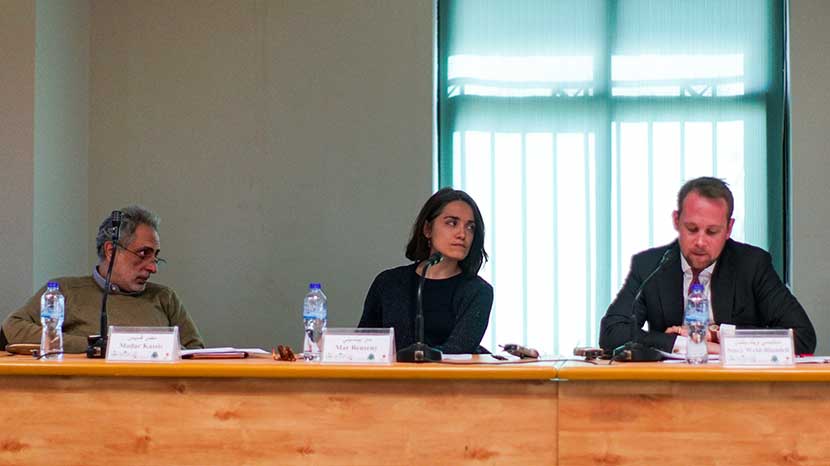Experts propose ways to tackle violent extremism
Local and international experts examined the paradigm of preventing violent extremism in light of United Nations efforts in a seminar held by The Muwatin Institute for Democracy and Human Rights at Birzeit University.
The seminar aimed to start a debate over current efforts to prevent violent extremism and to explore the conditions for ensuring that these efforts do not undermine human rights, including the Palestinian right to resist occupation in accordance with international law. The seminar was organized in cooperation with the Popular Struggle Coordination Committee, the International Institute of Nonviolent Action-Spain, and the Observatory to Prevent Extremist Violence (OPEV).
Panelists identified the structural causes of violent extremism, particularly in the Palestinian context, in relation to international efforts to combat the phenomena. They focused on the dynamic relations between real democracy and security, and the key experiences of the Palestinian resistance that might contribute to the prevention of violent extremism.
Director of Muwatin Institute Mudar Kassis said that violent extremism is not a recent phenomenon, but has become a top priority in the world. Palestinians, according to Kassis, are avoiding any real discussion about this issue, claiming that it might delegitimize some forms of resistance.
"Palestine is not immune to violence,” he told the audience. “We need a unified dialogue on the Palestinian future, the means of resistance, and the prospects of their success. International law must not be interpreted only by imperial powers."UNDP
UNDP rule of law technical specialist Stacy Weld-Blundell talked about the reasons behind the spread of violent extremism around the world. She emphasized the importance of identifying those causes in order to combat it. Blundell also indicated that history proves that the spread of violence destroys nations and societies.
Middle East Peacebuilding Expert and Mashreq Coordinator at NOVACT Mar Benseny pointed out that there is no constructive agenda aiming to prevent the spread of violence. There are, on the other hand, a number of ineffective policies to combat terrorism and violence that policymakers should avoid.
Benseny stated that numerous conferences are held around the world to prevent extremism and radicalism. These emphasize the importance of strengthening education and the role of youth in countries that are suffering from extremism.
Professor of Philosophy, Democracy and Human Rights at Birzeit University Arab Studies and Cultural Studies Programs George Giacaman presented the factors that result to extremism in Palestine, noting that “the highest level of extremism derives from state terrorism."
Popular Struggle Coordination Committee coordinator Munther Amireh advocated for popular resistance as the best model for achieving liberation.








